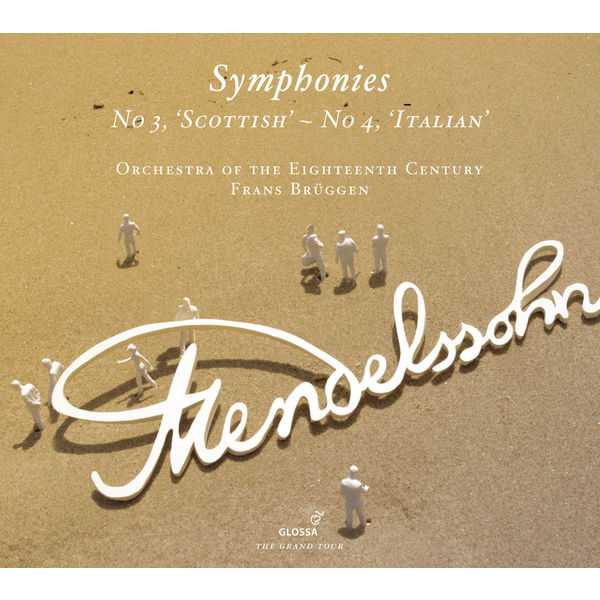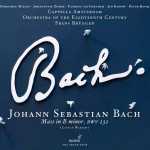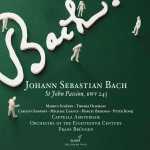
Composer: Johann Sebastian Bach, Felix Mendelssohn
Orchestra: Orchestra of the 18th Century
Conductor: Frans Brüggen
Format: FLAC (tracks)
Label: Glossa
Catalogue: GCD921117
Release: 2013
Size: 340 MB
Recovery: +3%
Scan: cover
Mendelssohn: Symphony No. 4 in A major, Op. 90 ‘Italian’
01. 1. Allegro vivace
02. 2. Andante con moto
03. 3. Con moto moderato
04. 4. Saltarello (Presto)
Mendelssohn: Symphony No. 3 in A minor, Op. 56 ‘Scottish’
05. 1. Andante con moto
06. 2. Vivace non troppo
07. 3. Adagio
08. 4. Allegro vivacissimo
Bach: Was willst du dich betrühen, BWV107
09. Herr, gib dass ich dein Ehre
Witnessing Frans Brüggen in any form of music-making is always a satisfying experience (the pleasure is doubly so this month with Glossa re-issuing the 1993 Sour Cream sessions featuring Brüggen as recorder player), so the opportunity to hear his interpretations of Mendelssohn’s Italian and Scottish Symphonies with his Orchestra of the Eighteenth Century is indeed an enticing one. Conductor and orchestra are both strongly in harmony with the evolving nature of the Romantic spirit of the 19th century; recent Glossa releases from them have included the much-praised Beethoven Symphonies and the Chopin Piano Concertos sets.
Here, Felix Mendelssohn is a composer who has long fascinated Brüggen – Glossa’s Cabinet series contains his 1997 recording of ‘A Midsummer Night’s Dream’ – and on this new recording he marvellously captures the emotional torrents experienced by Mendelssohn when reflecting on his own Grand Tour, which took in both the blazing sun of Rome and also the mists of the Scottish Highlands.
Opting to perform the original 1833 version of the Italian Symphony (as at its first performance in London), Brüggen sets out to paint a stronger contrast with the later completed Symphony No 3, brilliantly reflecting the composer’s wildly fluctuating moods at the time; a view of Mendelssohn eloquently covered by Roeland Hazendonk in his accompanying essay.
These new readings from Frans Brüggen – taken, as ever, from live performances, on Glossa’s Grand Tour series, here from Utrecht in The Netherlands – are rounded off with a moving orchestral transcription of music by a composer as close to Brüggen’s heart as he was to Mendelssohn’s: the closing chorale of Bach’s Cantata No 107, ‘Was willst du dich betrüben’.



